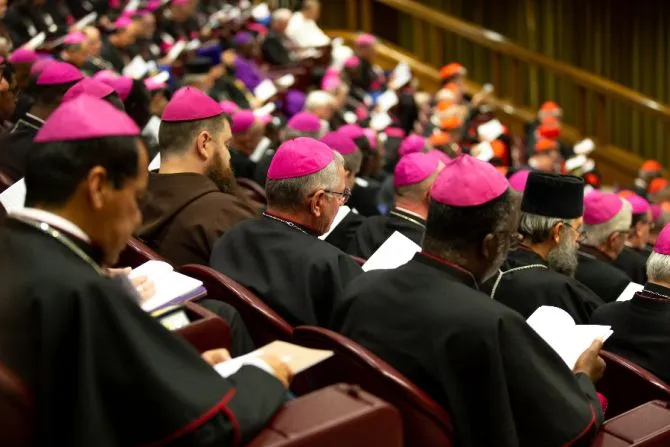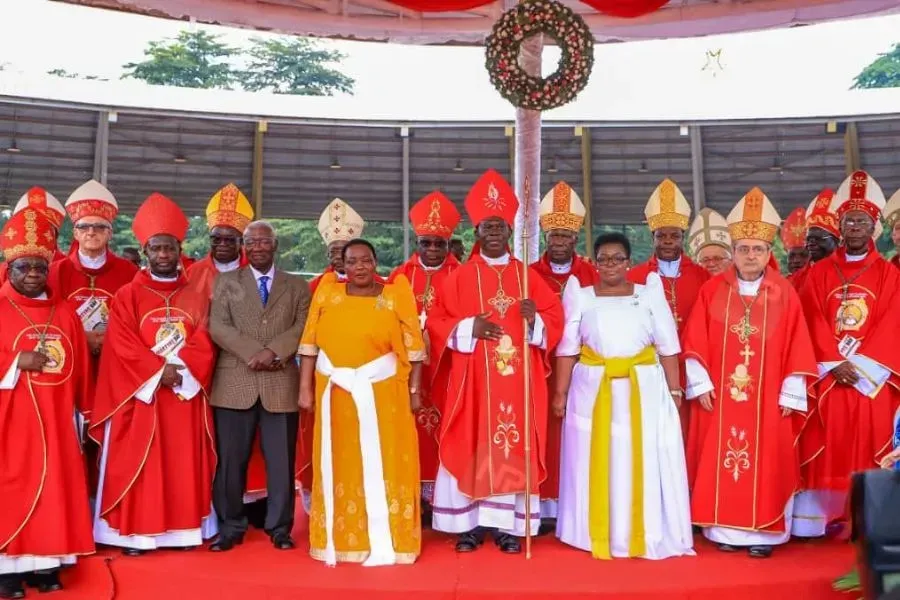The last part of the October gathering will focus on deciding the Church’s next steps and “the necessary in-depth theological and canonical studies in preparation” for a second assembly in October 2024.
“The Synodal Assembly of October 2023 will be asked to listen deeply to the situations in which the Church lives and carries out its mission,” the document states.
“What it means to walk together gains its missionary urgency when this question is asked in a particular context with real people and situations in mind,” it continues. “What is at stake is the ability to proclaim the Gospel by walking together with the men and women of our time, wherever they are, and practicing the catholicity that emerges from walking together with the Churches that live in conditions of particular suffering.”
Among the priorities outlined in the document is the role of women in the Church. One of the “worksheets” included with the text proposes the following question for discernment: “Most of the Continental Assemblies and the syntheses of several Episcopal Conferences call for the question of women’s inclusion in the diaconate to be considered. Is it possible to envisage this, and in what way?”
The synod document also proposes the following as suggestions for prayer and preparatory reflection: “How can we create spaces where those who feel hurt by the Church and unwelcomed by the community feel recognized, received, free to ask questions, and not judged? In the light of the Post-Synodal Apostolic Exhortation Amoris Laetitia, what concrete steps are needed to welcome those who feel excluded from the Church because of their status or sexuality (for example, remarried divorcees, people in polygamous marriages, LGBTQ+ people, etc.)?”
(Story continues below)
Another question recommended for prayer and reflection refers to the discipline of priestly celibacy. “As some continents propose, could a reflection be opened concerning the discipline on access to the priesthood for married men, at least in some areas?” the document asks.
The text makes repeated reference to “tensions” that have emerged through the synodal process, but it points to these as a positive and necessary part of discerning the Church’s path.
“We should not be frightened by them, nor attempt at any cost to resolve them, but rather engage in ongoing synodal discernment,” the document says. “Only in this way can these tensions become sources of energy and not lapse into destructive polarizations.”
Authority in the Church
The “exercise of authority in the Church” emerges as a major theme in the Instrumentum Laboris with the word “authority” appearing more than 50 times in the text.
“In every age, the exercise of authority and responsibility within the Church is influenced by the prevailing management models and imagery of power in society,” the text observes. “How can we become aware of this and exercise an evangelical discernment of the prevailing practices of exercising authority, in the Church and in society?”
One proposed question for discernment for the Synod of Bishops asks “what can we learn about the exercise of authority and responsibility from other Churches and ecclesial Communities?”
Another question asks: “How can we deal constructively with cases in which those in authority feel they cannot confirm the conclusions reached by a community discernment process, taking a decision in a different direction? What kind of restitution should that authority offer to those who participated in the process?”
Still another question poses: “What stimuli from indigenous, minority, and oppressed cultures can help us to rethink our decision-making processes?”
The text also proposes discerning how the awareness that a synodal Church needs co-responsibility and transparency can “form the basis for the reform of institutions, structures, and procedures, so as to strengthen change over time.” In particular, it mentions an expressed desire for “more participatory selection procedures, especially with regard to the selection of bishops.”
‘Conversation in the Spirit’
The document also devotes a significant amount of space, including a full-page illustration, to the concept of “conversation in the Spirit,” which it calls the “synodal method.”
Conversation in the Spirit, which appears 23 times, is described as a process of personal prayer, listening, sharing, making space for others and the Holy Spirit, and group discernment in an atmosphere of prayer.
“It is not conversation in the Spirit,” the document says, “if there is not a step forward in a precise, often unexpected direction that points to concrete action.”
The Instrumentum Laboris calls for “formation in this method” for all the baptized and for the formation of “facilitators” who can accompany communities in its practice.
“Formation for conversation in the Spirit is formation to be a synodal Church,” it says.
One question asks if conversation in the Spirit can aid “the renewal of decision-making processes in the Church” and if canon law needs to change to facilitate that process.
The document calls for the renewal of the Church’s seminary curriculum to include a greater focus on “a synodal style and mentality,” as well as changes to the language used in liturgy, preaching, catechesis, sacred art, communication, and media.
It emphasizes formation for every Catholic as “the indispensable means to make the synodal way of proceeding a pastoral model for the Church’s life and action.”
“Formation for a more genuinely synodal spirituality is at the heart of the renewal of the Church,” the text says.
Cardinal Jean-Claude Hollerich, who holds one of the key positions in the Synod on Synodality, said in a Vatican News interview in April that discernment in the synod is a “spiritual process.”
“And that is why we have this spiritual conversation, or rather this conversation in the Spirit: It is a way of listening and entering into dialogue, not with an attitude of opposition, in order to reach a common conclusion.”
“It is clear,” Hollerich added, “that there is always a need for conversion in this process: Sometimes it is the bishop who must convert, sometimes it is the laity who must also convert."
“Spiritual conversation,” which has been mentioned in other synod-related documents, comes from Ignatian spirituality and is tied to the Spiritual Exercises.








